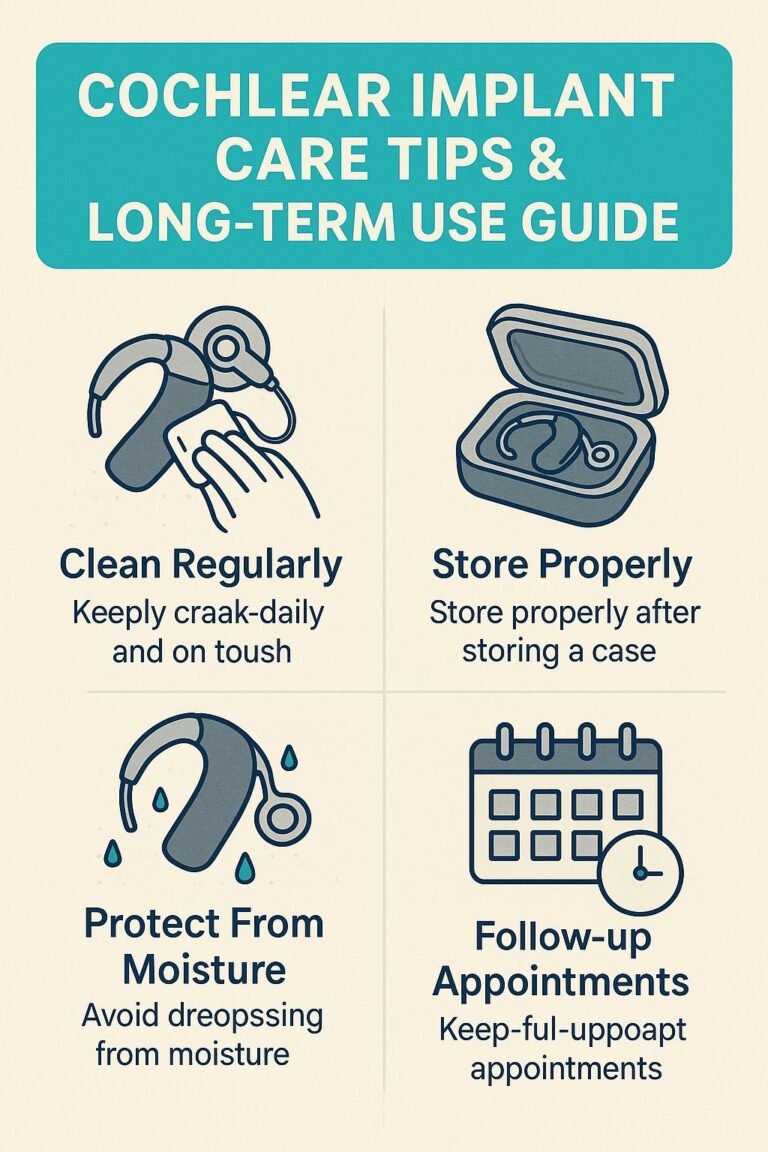In our busy lives, sleep is often the first thing we sacrifice for other priorities. But the quality and stages of our sleep, especially deep sleep, are crucial for keeping our brains healthy. This is particularly important when it comes to the risks and prevention of Alzheimer’s disease.
Summary
- Deep sleep, particularly slow-wave and REM sleep, is crucial for brain detoxification and memory consolidation.
- Insufficient deep sleep may accelerate the progression of Alzheimer’s disease by increasing the levels of tau protein in the brain.
- Recent studies have shown a strong correlation between reduced deep sleep and early signs of Alzheimer’s, such as a reduction in brain volume.
- Improving sleep quality through lifestyle modifications can potentially reduce the risk of Alzheimer’s.
- Regular sleep schedules and a sleep-friendly environment are important for enhancing deep sleep stages.
The Relationship Between Deep Sleep and Alzheimer’s Disease
In order to understand the relationship between deep sleep and Alzheimer’s, it is necessary to examine how sleep affects brain health. The brain performs essential functions during deep sleep stages, particularly slow-wave and REM sleep, which are vital for maintaining cognitive health.
The Role of Deep Sleep in Maintaining Brain Health
Deep sleep is more than just a way to rest the body; it’s also a time when the brain performs important tasks. While in slow-wave sleep, the brain removes toxins, including beta-amyloid, a protein that forms plaques in the brains of Alzheimer’s patients. This detox process is crucial for preventing the build-up of harmful substances that can damage brain function.
Why Deep Sleep Matters
Deep sleep, also known as slow-wave sleep, is the stage when our brains go into rest and repair mode. This is crucial for memory consolidation and learning. If we don’t get enough deep sleep, it can result in elevated levels of tau proteins, which are indicators of Alzheimer’s disease.
Imagine slow-wave sleep as the janitorial staff working the graveyard shift for your brain. If it doesn’t occur, your brain doesn’t get to clean up, causing a pile-up of junk that can mess with your thinking abilities. Research suggests that decreased deep sleep may be linked to early signs of Alzheimer’s disease, highlighting the importance of maintaining healthy sleep patterns.
What is REM Sleep?
REM sleep, also known as Rapid Eye Movement sleep, is another vital stage where the brain is very active. It’s during REM that the brain processes feelings and experiences, making it crucial for emotional regulation and memory processing. A deficiency in REM sleep can lead to a higher risk of cognitive decline, further connecting poor sleep quality to Alzheimer’s.
Of significant importance, REM sleep is when the brain goes through memories, choosing what to keep and what to discard. This process is crucial for keeping a sharp memory and emotional balance.
The Importance of Deep Sleep in Lowering the Risk of Alzheimer’s
Studies have repeatedly demonstrated that getting enough deep sleep can drastically lower the chances of getting Alzheimer’s disease. By learning about and improving these sleep stages, we can actively work towards preventing Alzheimer’s.
Deep Sleep and Brain Cleansing
Deep sleep is a time when the brain’s glymphatic system goes into overdrive, clearing out waste and toxins. This cleansing process is vital to stopping the accumulation of beta-amyloid and tau proteins, which are both associated with Alzheimer’s disease.
What Recent Research Has Revealed
Recent research has underscored the role of deep sleep in preventing Alzheimer’s disease. One important discovery is that individuals with less slow-wave sleep have more tau protein in their brains. This protein is a key indicator of Alzheimer’s, suggesting that inadequate deep sleep could speed up the progression of the disease.
Additional research has discovered that the inferior parietal region of the brain, which is critical for cognitive functions, decreases in size in people who don’t get enough deep sleep. This reduction in size is an early sign of Alzheimer’s, highlighting the importance of good sleep for brain health.
What the Experts Say
Specialists in sleep medicine and neurology are adamant about the importance of deep sleep in maintaining cognitive health. Dr. Gawon Cho, a prominent researcher in the field, has observed that a lack of slow-wave and REM sleep seems to result in a reduction in the size of the areas of the brain associated with Alzheimer’s disease.
These findings are also backed by clinical observations. Doctors have noted that Alzheimer’s patients often have disrupted sleep patterns, which could make their symptoms worse. By improving the quality of sleep, it’s possible to slow down or even prevent the onset of Alzheimer’s. For more insights, check out the 2025 global health trends that could impact Alzheimer’s prevention strategies.
- Dr. Cho advises that we should prioritize sleep hygiene to enhance deep sleep stages.
- He also recommends regular sleep schedules to maintain stable circadian rhythms.
- Reducing light and noise pollution can also help improve sleep quality.
These recommendations are backed by extensive clinical studies and observations, providing a solid basis for using sleep improvement as a preventive measure against Alzheimer’s.
Natural Methods to Increase Deep Sleep
Deep sleep doesn’t always need to be improved with medication. There are natural ways that can effectively enhance the quality of sleep, which can help reduce the risk of Alzheimer’s.
Setting Up a Regular Sleep Schedule
“A regular sleep schedule is the foundation of good sleep. By going to bed and waking up at the same time every day, including weekends, you can help regulate your body’s clock and improve the quality of your sleep.” – Sleep Foundation
To set up a regular sleep schedule, begin by determining a set bedtime and wake-up time. This aids in setting your internal clock, making it simpler to fall asleep and wake up naturally.
In addition, try incorporating relaxing pre-sleep rituals such as reading or taking a warm bath. These activities tell your body that it’s time to start winding down, which can lead to deeper sleep.
Moreover, you should reduce the amount of time you spend looking at screens before going to sleep. The blue light that screens give off can disrupt your body’s natural sleep-wake rhythm, which can make it more difficult for you to fall asleep.
How Your Eating Habits Affect Your Sleep
Your food choices can have a huge impact on the quality of your sleep. Eating a balanced diet that includes plenty of fruits, vegetables, and whole grains can help you sleep better. Foods that are high in magnesium, like leafy green vegetables and nuts, can be especially helpful for improving the quality of your deep sleep.
The Advantages of Natural Sleep Aids
Natural sleep aids such as melatonin supplements can be beneficial in managing sleep cycles. Melatonin is a hormone that your body naturally generates, and consuming it as a supplement can assist you in falling asleep more quickly. For more insights, explore the 2025 global health trends that might influence sleep health.
Herbal teas such as chamomile and valerian root are renowned for their soothing properties. These teas can aid in relaxation and prepare your body for a good night’s sleep. For those interested in holistic approaches to wellness, exploring natural remedies for chronic inflammation can also be beneficial.
Preventing Alzheimer’s by Improving Sleep Quality
Improving the quality of your sleep can help you actively reduce your risk of Alzheimer’s disease. Here are some strategies you might want to try.
First and foremost, make deep sleep a priority by sticking to a regular sleep schedule and creating an environment conducive to sleep. These steps can improve the quality of your sleep and promote the health of your brain. For more insights, read about how deep sleep affects Alzheimer’s risk.
The Significance of Consistent Sleep Patterns
Consistent sleep patterns help synchronize your body’s internal clock, which aids in achieving deep sleep. Try to go to sleep and wake up at the same time every day to create a natural rhythm.
Setting Up a Sleep-Inducing Space
Your bedroom should be a haven for sleep. Make sure it’s cool, dark, and quiet to encourage a peaceful atmosphere. If needed, you might want to think about using blackout curtains or a white noise machine.
Keeping an Eye on Your Sleep for Early Signs
By keeping an eye on your sleep patterns, you can gain a better understanding of the quality of your sleep. Using a sleep tracker can help you identify any issues with your sleep cycle and make any necessary adjustments.
For instance, if you find yourself waking up frequently throughout the night, it might be a sign of an underlying problem that needs to be addressed, like sleep apnea or stress.
“Keeping a close eye on your sleep habits can help to identify potential sleep disorders early on. This allows for early treatment and prevention of further cognitive decline.” – National Institute on Aging
By taking these steps, you can improve the quality of your sleep and lower your risk of Alzheimer’s disease, ensuring a healthier and more vibrant life. For more insights, you can explore how deep sleep affects Alzheimer’s risk.
Wrapping Up the Discussion on Sleep and Alzheimer’s Prevention
As we wrap up, it’s clear that the link between deep sleep and Alzheimer’s disease is a crucial research field that holds the key to promising prevention methods. Deep sleep stages, especially slow-wave and REM sleep, are vital for brain detoxification and memory consolidation. By making sleep quality a priority, we can possibly lower the risk of Alzheimer’s and boost overall brain health.
Main Takeaways
We’ve looked at how the stages of deep sleep affect the health of the brain, particularly their role in helping the brain detoxify and consolidate memories. Research has shown that not getting enough deep sleep can lead to higher levels of tau proteins, which are associated with Alzheimer’s disease. Natural methods, like keeping a consistent sleep schedule and making your environment more conducive to sleep, can greatly improve the quality of your sleep. By implementing these strategies, people can take a proactive approach to lowering their Alzheimer’s risk. For more information, you can read about how Alzheimer’s risk rises when deep sleep falls.
Advice for the Future
As we look to the future, it is crucial to put sleep health at the forefront of a holistic approach to preventing Alzheimer’s. Sticking to a regular sleep schedule, eating a balanced diet, and using natural sleep aids can all improve sleep quality. Furthermore, we need more research to understand the complex link between sleep and Alzheimer’s, which could lead to new ways to prevent and treat the disease.
People should also think about keeping an eye on their sleep patterns to spot any potential disruptions early. By keeping ourselves informed and being proactive, we can strive for a future where Alzheimer’s disease is less common.
Commonly Asked Questions
Grasping the importance of sleep in preventing Alzheimer’s is key. Here are some frequently asked questions and responses that can shed more light on this subject.
How does deep sleep contribute to brain detoxification?
Deep sleep triggers the brain’s glymphatic system, which gets rid of waste products and toxins. This detoxification process is important in preventing the build-up of beta-amyloid and tau proteins, which are associated with Alzheimer’s disease.
How can modifications to your lifestyle enhance the quality of your sleep? Incorporating a balanced diet and regular exercise, such as weight training, can significantly improve your sleep quality and overall health.
Improving your sleep quality can be as simple as making a few lifestyle changes. Try sticking to a regular sleep schedule, creating a sleep-friendly environment, and limiting your screen time before bed. These changes can help your body’s internal clock stay on track and encourage deeper sleep stages.
Are there particular foods that enhance deep sleep?
Indeed, specific foods can boost deep sleep. Foods that are high in magnesium, like leafy greens and nuts, can be especially helpful. Also, foods that are rich in tryptophan, such as turkey and dairy, can aid in the production of hormones that induce sleep.
What is the difference between REM sleep and slow-wave sleep?
The brain is highly active during REM sleep, processing emotions and experiences. This stage is critical for emotional regulation and memory processing. Conversely, slow-wave sleep is the deepest stage of sleep, where the brain enters a state of rest and repair. This stage is necessary for memory consolidation and detoxification.
Is it possible that enhancing sleep could prevent Alzheimer’s disease?
Enhancing the quality of your sleep can possibly lower your chances of getting Alzheimer’s disease. By making sure you get enough deep sleep, you are supporting the health of your brain and reducing the buildup of harmful proteins that are linked to Alzheimer’s. While sleep by itself may not stop Alzheimer’s, it is a major part in a full plan to prevent it.
By recognizing the value of deep sleep and making it a priority, we can take significant steps to improve brain health and decrease the risk of Alzheimer’s disease.
Artificial intelligence has been used to identify how deep sleep stages can affect a person’s risk of developing Alzheimer’s disease. The research, which was led by a team at the University of California, Berkeley, found that a decrease in non-rapid eye movement (NREM) slow-wave activity, which is a deep sleep stage, can predict the buildup of beta-amyloid plaques, a key biomarker for Alzheimer’s disease. The team used a machine-learning algorithm to analyze the sleep stages and beta-amyloid levels of a group of elderly adults. The results showed that a decrease in NREM slow-wave activity was linked to an increase in beta-amyloid levels, indicating a higher risk of Alzheimer’s disease. The researchers believe that this finding could be used to develop new strategies for preventing Alzheimer’s disease.










